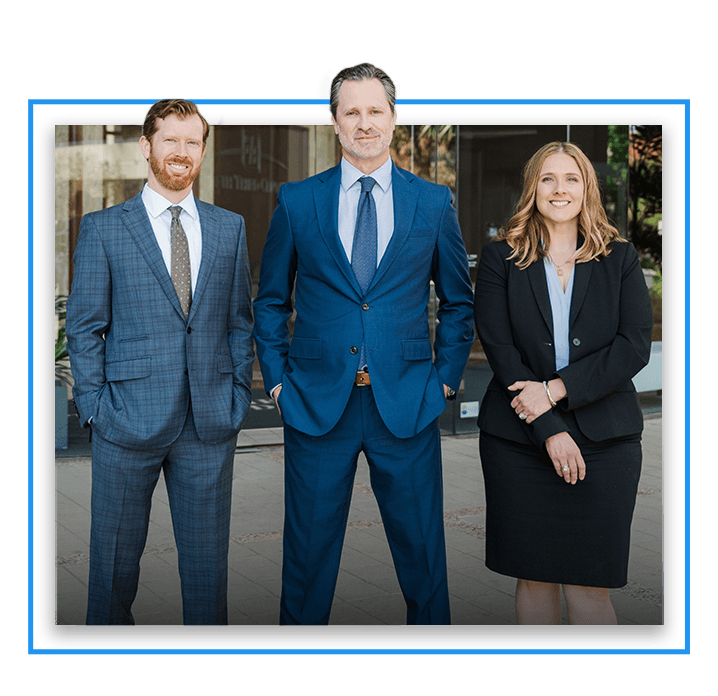
What Is Florida’s Good Samaritan Law?
When you see another person in need of help in an emergency situation, the last thing that should be on your mind is getting in trouble for trying to help. That hesitation can cost a person their life, especially if it’s in an emergency medical situation like a car accident or an overdose. In order to combat this hesitation, Florida has a law on its books known as “The Good Samaritan Act”. The act provides certain legal protections for bystanders that try to help another person that is either:
- Ill
- Incapacitated
- In medical danger
While there are some conditions and scenarios that go along with the law, its general protections are usually enough to encourage you or other bystanders to help out someone that is in dire need of assistance. Generally speaking, letting medical professionals take the lead is recommended, but emergencies usually require a more immediate response.
Expert Knowledge From Florida Personal Injury Attorneys
Part of the hesitation in helping someone in need comes from misconceptions about the law and being sued. While it is true that acting negligently generally makes a person responsible for any damage or further injury they cause another person, Florida’s Good Samaritan Act provides a bit of protection in that regard.
Still, understanding your legal options comes down to working with experienced and knowledgeable attorneys. At Robert Sparks Attorneys, we have years of experience and knowledge to give clients regarding Florida’s laws and how they apply to your specific situation. If you would like to learn more about your legal options, contact us for a free consultation.
What Is Florida’s Good Samaritan Law?
Legally speaking, there is no duty under Florida law to help an injured victim. The original intent behind Florida’s Good Samaritan Act was to protect medical professionals when they provided care in an emergency public setting, outside of clinical facilities. For example, if a doctor is eating at a restaurant and sees another person choking, they can act with their medical expertise to help the person without fear of being sued for medical malpractice in the event something goes wrong.
But the Act was also meant for regular, everyday people to act in emergency situations. Under the Florida Good Samaritan Act:
- Any person, including medical professionals, that provide medical assistance in good faith during an emergency:
- Will be immune from any civil liability or damages that result from their administering of care or treatment.
The Act also pertains to a professional setting, not just in public. Doctors or other professionals that respond to an emergency where the victim is not their patient, cannot be held liable for any further damage.
A key point of the Act refers to giving aid “in good faith.” Basically, this means that when a person gives aid, they do so in a way that:
- The immediacy of the situation is to the level that the rendering of aid needs to be done immediately, and the failure to do so would likely contribute to the fatal nature of the accident.
911 Good Samaritan Act
One other situation where Florida’s Good Samaritan laws extend is in the instance of a possible drug overdose. Sometimes referred to as the “911 Good Samaritan Act”, the law maintains that anyone who acts in good faith to give medical aid or help to a potential overdose victim may not be:
- Arrested
- Charged
- Otherwise penalized for possession of the drugs that led to the overdose.
Further, the law prioritizes helping overdose victims rather than arresting them.
Limitations to Florida’s Good Samaritan Law
While the law is in place to protect people from being sued, there are some limitations in place. Basically, the key component of the Good Samaritan Act involves consent. When trying to help the injured person, they must give consent. In situations where the injured person is unconscious, or otherwise incapacitated, “implied consent” will apply.
Implied consent is a legal concept that maintains:
- A person’s actions or lack of action can be interpreted as agreeing to a particular act or situation.
In the context of a Good Samaritan situation, when the injured person is unable to or otherwise fails to object to your attempt to give aid is usually interpreted as implied consent to receive that treatment.
The other limitation of the Good Samaritan Act is “gross negligence.” Generally speaking, the Act’s protections end when your attempts to help the person are done in a reckless or careless way.
Negligence is the standard of determining liability in a Florida personal injury claim, and generally has four elements:
- Acting in a way that would not cause further injury to the other person.
- In your attempt to provide care to the person, you caused further injury.
- Your breach of duty caused the further injury
- The injuries and damages suffered were the direct results of your actions.
Gross negligence takes this one step further in Good Samaritan situations. In these situations, a Good Samaritan could be found grossly negligent if they:
- Know that their attempts to aid the person could further endanger the person
- Continue with their aid anyway
Again, the ultimate purpose of the law is to encourage help in an emergency situation without fear of civil penalty under Florida law. It’s important to understand that even with the law’s protections in place, it does not stop a person from filing a lawsuit against you. Thus, it’s important to know what you’re up against in a civil lawsuit in Florida.
What Are Damages in a Florida Civil Lawsuit?
Like other states with Good Samaritan laws, Florida’s Good Samaritan Act is in place to let people act without fear of being liable for any damages. Generally speaking, a Good Samaritan situation would fall under the umbrella of personal injury. In Florida, personal injury lawsuits or claims allow an injured person to recover their damages from the person or entity that was at fault for their injuries.
The problem with Good Samaritan situations is that they occur during medical emergencies. As such, they happen in an already extremely precarious and dangerous situation. Taking quick action–or failing to act–can not only further injuries but in the worst-case scenario, can lead to the injured person’s death.
Medical emergencies can be tragic, and even with your good faith attempts to help the person, you could still find yourself faced with a civil lawsuit. In a Florida personal injury lawsuit, the following damages are available:
- Medical bills
- Funeral expenses
- Lost wages
- Loss of future income
- Loss of companionship
- Any pain and suffering felt by the deceased before death
- Property damage
While the Good Samaritan Act protects you from liability, that is often for a judge and jury to decide. Thus, it’s important to make sure that your attempts to help the person don’t cross over into being grossly negligent.
Also, Florida’s statute of limitations for personal injury claims comes into play here. A statute of limitations is the deadline by which a person can file a lawsuit against you. In Florida, the statute of limitations for an injury or wrongful death claim is four years from the date of injury or death.
Experienced Legal Support From Robert Sparks Attorneys
Medical emergencies that require the aid of Good Samaritans can be quite stressful and scary. Still, the desire to help others usually wins out and often saves the injured person’s life. At the same time, there is a very thin line between trying to help and making the situation worse.
When you witness a medical emergency, you may feel like you have a duty to respond. While that is certainly admirable, it can also open you up to a lawsuit in the event that the person’s injuries worsen. This only adds to the stress of an already uncomfortable situation.
At Robert Sparks Attorneys, our team of experienced Florida personal injury attorneys can explain your legal options and provide you with the support you need to face any claim made against you. No person should be punished for trying to help another in need, but all too often, that’s what happens. If you are in need of legal advice, contact us today for a free consultation.

At our firm, we have a reputation built on winning. Our ultimate goal is to protect and pursue your rights and your family’s well-being. With decades of collective experience, we are highly qualified and committed to securing the best legal outcomes for individuals who need the skill, dedication, and compassion of our trial attorneys.

Strength. Trust. Results.
Read What Our Clients Say In Their Own Words.
-
“The professionalism of staff, the promptness of responses to questions, and the overall guidance through the process after my accident was astounding. Rob and Garrett were absolutely AMAZING.”- Daner J.
-
“I am very satisfied with the exceptional work that Robert Sparks Attorney has done for me and my case. Garrett Riley handled my case. I really appreciate how communicative and persistent he was.”- Alexis M.
-
“The communication with him and his team is fantastic, and you really feel they are with you every step of the way with your case. He is very caring and understanding, and takes initiative and leads the charge with moving your case along.”- Mary A.
-
“My cases both had successful outcomes and I am certain that this as a result of his knowledge and work ethic. His attention was primarily focused on my health and well being prior to anything else.”- Melissa E.
-
“Although, I have to put a special highlight on Cheryl! She is one of the sweetest and most compassionate people I know. She truly cares about their clients as if they were friends and had know each other for years.”- Nicole S.
-
“It was non-stop communication with both Rob and Cheryl. The road was long but this team is adamant and steadfast on their mission and dedication to each client.”- Michelle N.
-
“Rob, thank you so much for helping with all of this and know that I hold you and your staff in the highest professional esteem. No matter what was thrown at us, you had an answer that countered.”- Former Client
-
“Our family cannot begin to express appreciation for the legal expertise provided by attorney Robert Sparks and his team at Robert Sparks Attorneys!”- Former Client
